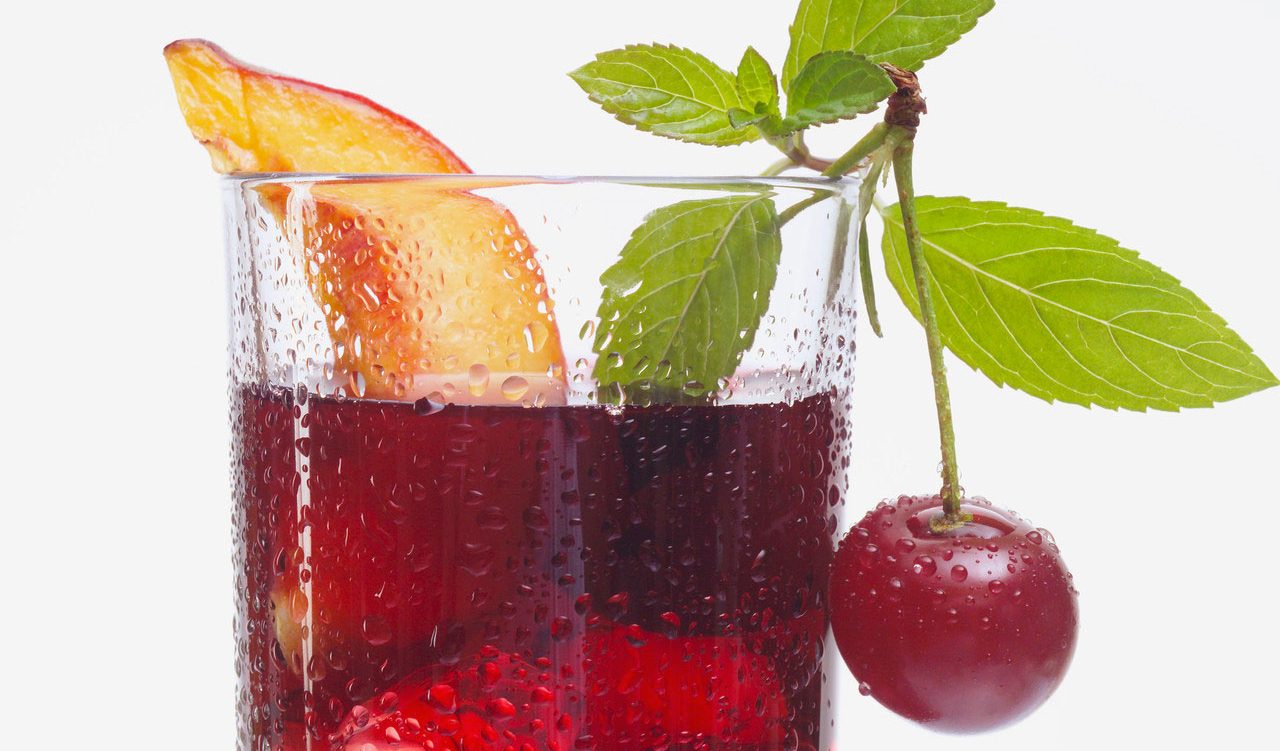Your Diet Can Provide Natural Pain Relief

Chronic pain is unlikely to go away entirely, and most painkillers have side effects. But there's hope: Learn how your diet can provide natural pain relief.
When you’re in enough pain for long enough, you may be grateful to painkillers. But the pain is unlikely to go away entirely, and most of these drugs have side effects. Even standard over-the-counter drugs like ibuprofen are very rough on the digestive system. There’s an alternative few people have tried: changing your diet.
YOU MIGHT ALSO LIKE: Functional Foods May Replace Your Doctor's Prescription Pad
Mel Pohl, MD, medical director of the Las Vegas Recovery Center, and co-author of “The Pain Antidote: The Proven Program to Help You Stop Suffering from Chronic Pain, Avoid Addiction to Painkillers—and Reclaim Your Life,” reports that a new diet helped his back pain and helped his patients with joint pain, back and neck pain, headaches, and abdominal aches.
A natural chemical called anthocyanins can relieve pain as well as aspirin. Cherries, blueberries, cranberries, and blackberries all contain anthocyanins, as well as vitamin C, which also can reduce inflammation and pain. Inflamed tissues swell and press on the nerves and interfere with circulation, which all contribute to pain. That’s why we take “non-steroidal anti-inflammatory drugs,” also known as NSAIDs, for pain, including aspirin.
You can try frozen cherries and 100 percent cherry juice in the off-season. In a study of 20 women ages 40 to 70 with inflammatory osteoarthritis, researchers found that drinking tart cherry juice twice daily for three weeks led to significant reductions in important inflammation markers — especially for women who had the highest inflammation levels at the start of the study. (Another study, however, found no difference between tart cherry juice and placebo.) People who drink cherry juice before a long-distance run report less pain afterwards.
Start cooking with olive oil, which contains an inflammation-fighter called oleocanthol. But be sure you’re getting a cold-pressed oil in a dark bottle well within an expiration date.
YOU MIGHT ALSO LIKE: Why Don't Americans Eat More Fruits and Vegetables?
Eat spinach and kale, almonds and walnuts, tofu and soy milk, and fatty fish like salmon, tuna, mackerel and sardines. People have different reactions to nightshade vegetables like tomatoes and peppers — so monitor your own pain levels after eating these.
Cayenne pepper, chili powder and paprika all contain capsaicin, a potent painreliever when applied to the skin in ointments. There is some evidence that eating capsaicin can help digestion and even lower blood sugar levels, and there’s no harm in trying it to reduce your pain as well. Consider cutting out alcohol or cutting back. Alcohol irritates the intestines and allows bacteria to pass into the blood, which could increase inflammation even if you don’t notice an infection. Although many people distract themselves from pain with alcohol, that pattern can wreak havoc with your life and health.
A high-sugar diet triggers inflammation, and so does eating food that converts quickly to sugar in your body, the usual suspects: white bread, white rice, and potatoes. Give up candy, soda, and donuts. Again, check your own reaction. If you can have pudding for dessert and not experience any increase in pain, go ahead. Any long-term diet shouldn’t make you feel chronically deprived. But you may well find that you lose your taste for sweets and freedom from pain is a great motivator. People with chronic arthritis often find that even a slight decrease or increase in inflammation makes a difference.
With the summer, you may be thrilled to pull out the grill. But meats cooked at high heats — in the broiler, on a grill, or in a pan — can trigger inflammation. Simmering, sautéing, and roasting food at 350 degrees are better cooking methods. Burgers, steaks, hot dogs, and sausage are all inflammation-boosters.
If you take pills occasionally without really knowing what they are, be clear on the basics. The over-the-counter NSAIDs are ibuprofen (brand names are Advil and Motrin) naproxen (Aleve), or aspirin (Bayer). There are also many prescribed NSAIDs, including Anaprox, Celebrex, Daypro, and Feldene. Prescription opioid drugs, such as OxyContin, Percocet, Vicodin, Percodan, Tylor, and Demerol, and others, aren’t a better choice, as they can be addictive, can lead to drug tolerance and withdrawal, and do not provide effective long-term relief for chronic pain.
Updated:
March 27, 2020
Reviewed By:
Christopher Nystuen, MD, MBA